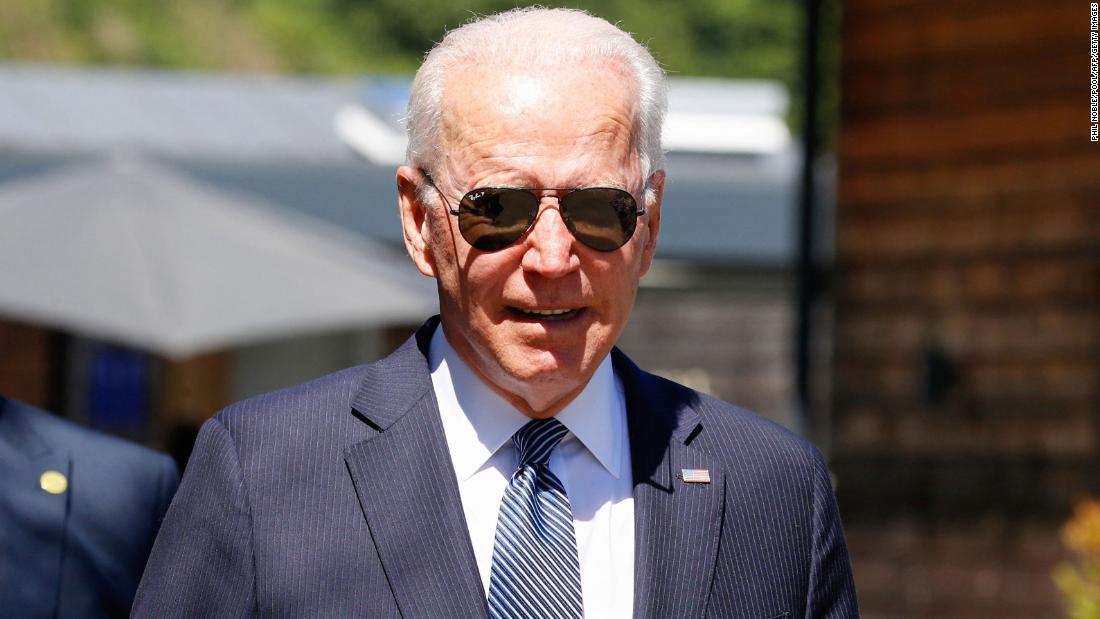
The NATO summit comes as Biden looks to reassert American leadership on the world stage and strengthen global partnerships during his first international trip as President. It comes on the heels of several meetings with US allies and the annual Group of Seven summit in Cornwall, England.
Biden said Sunday he would reiterate the US’s commitment to NATO’s collective defense clause and communicate to allies that the US believes Article 5 is a “sacred obligation.”
“We do not view NATO as a sort of a protection racket,” Biden told reporters on Sunday in Cornwall, stressing the importance of the intergovernmental military alliance between the 30 European and North American countries.
The President continued: “We believe that NATO is vital to our ability to keep American security for the next … remainder of the century.”
The President is looking to take a vastly different approach to his predecessor, former President Donald Trump, who frequently railed against NATO, questioned the need for the organization and argued the US was contributing more than its fair share to the group.
During Monday’s summit, NATO leaders are expected to discuss how to manage future threats and “ensure effective burden sharing,” according to White House press secretary Jen Psaki.
The White House also said in a release on Sunday that during the summit, NATO members will announce a new “strategic concept” that would guide the alliance’s approach going forward as the strategic environment changes, including threats from China and Russia. They expect it to be adopted at next year’s NATO summit, according to the release.
The statement also highlighted increased defense spending among member states, saying, “Allied leaders will recommit to (an Obama-era pledge) in its entirety and to providing NATO with cash, capabilities, and contributions of ready forces.”
Biden is also expected to meet with Turkish President Recep Tayyip Erdogan while in Brussels. The meeting could be tense at points, as it comes after Biden officially recognized the massacre of Armenians under the Ottoman Empire as a genocide.
Monday’s summit comes after G7 leaders issued a final communiqué of their shared agenda moving forward. It committed to end the coronavirus pandemic, combat the climate crisis, speaking out against human rights abuses in China, singling out Russia as harboring networks that have conducted ransomware attacks wreaking havoc on critical systems and issuing a call for a new study into the origins of Covid-19, among other issues.
After the NATO summit, Biden will participate in the US-EU summit on Tuesday. The meeting serves to underscore the US commitment to strong transatlantic ties, the White House says, and leaders will discuss global health security, global economic recovery, the climate crisis, enhancing digital and trade cooperation and strengthening democracy, among other mutual concerns.
Biden will also meet with King Philippe of Belgium and Belgian Prime Minister Alexander De Croo.
The President is then scheduled to hold a highly anticipated summit with Russian President Vladimir Putin on Wednesday in Geneva.
Biden said Sunday he agreed with Putin that relations between the US and Russia are at a “low point,” but told reporters that the US is “not looking for conflict” and said there may be a “strategic doctrine” that the countries could agree on that touches on areas like the climate crisis.
Biden also defended the decision not to hold a joint news conference with Putin after their high stakes meeting, arguing such an appearance would only serve to detract from the US’ goal of working toward a stable and predictable relationship with Russia.



